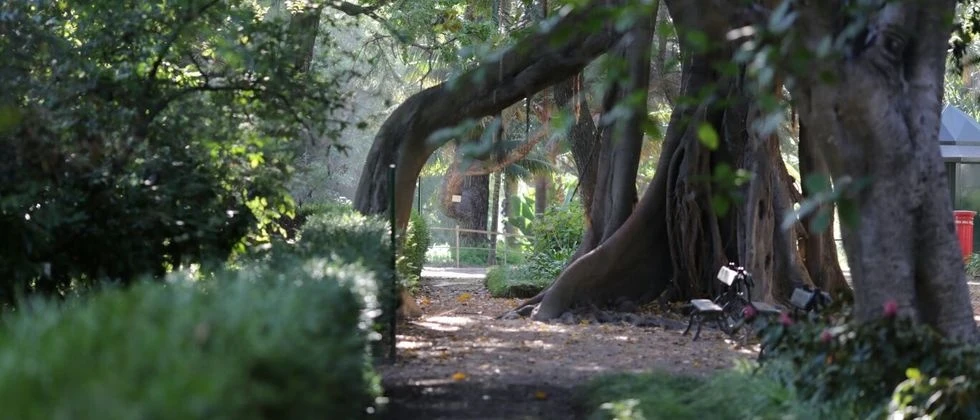Lisbon Botanical Garden
Lisbon

The Lisbon Botanical Garden is a scientific garden that was designed in the mid-19th century as a modern and useful complement to the teaching and research of botany at the Polytechnic School.
A unique space in the centre of Lisbon with 4.2 hectares, you can get to know the flora of the five continents. This is a national monument that is also one of the lungs of the city of Lisbon, with the role of harbouring not only species from all over the world, but also endangered species.
Inaugurated in 1878, this garden is part of the National Museum of Natural History and Science at the University of Lisbon.
The experience will always be different according to the time of year: in winter you'll find trees, flowers and a very different flora from spring; in summer you'll find a refreshing nook that reflects in its ponds an ideal cooling sound on a very hot day.
In spring, a visit to the butterfly garden is essential to get to know all the butterfly species in Portugal - an experience not to be missed!
The systematic collections serve various branches of botanical research, demonstrating to the public and schools the great diversity of plant forms and multiple ecological processes, while at the same time representing an important and effective means of conserving endangered plants.
Some collections deserve special mention. The remarkable diversity of palm trees, from all continents, gives an unexpected tropical flavour to the Garden's various locations. Cycads are one of the Garden's ex-libris. Authentic living fossils, they represent ancient floras, most of which have died out. Today, they are all very rare, with certain species that are only preserved in botanical gardens. The Garden is particularly rich in tropical species from New Zealand, Australia, China, Japan and South America, which attests to the mildness of Lisbon's climate and the peculiarities of the microclimates created in this Garden.
As is the case with most botanical gardens, in close collaboration with the Museum's other departments, the Garden also runs active environmental education programmes for the different age levels of the student population and offers themed guided tours.
On 4 November 2010, the Botanical Garden was classified as a national monument.
Take advantage of the guided tours on Saturdays and Sundays.





